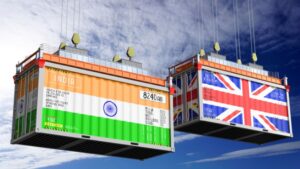India has long upheld values of environmental stewardship, waste reduction and a strong belief in the well-being of humanity. However, these principles were gradually eroded over time due to the rise of commercialisation, industrialisation and consumerism. Now, there is a renewed focus on sustainability. All stakeholders in the textile and apparel industry, from cotton farmers to garment manufacturers, retailers, start-ups, NGOs, government bodies, technology companies, solution providers and consumers, are joining forces with a common agenda—to promote sustainability and protect our planet. Companies acknowledge that sustainability is not only their legal obligation but also a moral responsibility. However, whether they engage in sustainable practices out of compulsion or genuine morality is a separate matter that sparks debate.
Concurrently, there are growing concerns about ‘greenwashing’ or ‘greenhushing’ (fashion retailers being particularly scrutinised in lawsuits related to misleading environmental claims). Government agencies such as state pollution control boards and the National Green Tribunal (NGT) are actively enforcing regulations. Additionally, stakeholders throughout the supply chain are pushing each other to embrace sustainable practices. Internationally, initiatives like the United Nations’ Sustainable Development Goals (SDGs), Conference of the Parties (COP) sessions, and efforts by organisations like Fashion for Good, Science Based Targets and the Green Building Initiative (GBI) are making significant strides. Overall, the Indian textile and apparel industry is recommitting itself to sustainability, with concerted efforts from various stakeholders at both national and international levels.
| 94% Indian consumers willing to pay high prices for ‘ethical’ products (Opentext’s survey) |
McKinsey’s report The State of Fashion 2023: Holding onto growth as global clouds gather underlines that as the industry continues to grapple with its damaging environmental and social impact, consumers, regulators and other stakeholders may increasingly scrutinise how brands communicate about their sustainability credentials. If brands want to avoid being part of greenwashing, then they must show that they are making meaningful and credible changes while abiding by emerging regulatory requirements. The report also underlines that inflation is the greatest threat while sustainability presents the biggest opportunity to the fashion industry in 2023.
Sustainable steps by the Indian textile and apparel industry
Top companies like Shahi Exports, Pearl Global, Eastman Exports, Aquarelle and Laguna India (part of CIEL Textile Group), Pratibha Syntex, Reliance Retail, Aditya Birla Fashion Retail, Arvind, Vardhman Textiles, Welspun, Trident have taken lead role towards initiating and implementing several programmes to work for people, planet and profitability. Few of them have made it a part of their annual agenda to release their sustainability reports which include extensive details about their targets, efforts and achievement in sustainability.
Nearly all of them are using renewable energy and are actively into water conservation, worker welfare, giving back to society and much more.
Shahi Exports has a target to achieve 100 per cent renewable electricity by FY 2026 which is currently 68 per cent, while for carbon-neutral energy, its aim is 50 per cent by FY 2026 (currently 35 per cent).
Leading apparel exporters Aquarelle and Laguna India have also achieved LEED Platinum certifications for two of their six factories.
Eastman Exports has successfully converted 41 per cent of coal-based energy sources with biomass. It also uses Recycled Claim Standard (RCS)-marked recycled cotton and has reduced fibre wastage by up to 30 per cent in the production process.
Arvind Ltd., is also committed to reducing the weight of plastic packaging by 5 percent by 2025 compared to the baseline of 2022.
Gurgaon-based Afflatus International is saving energy through LED lights direct driver machines and steam discharge from its boilers is reused after condensation. It works extensively with organic fabrics and is certified under GOTS, Sedex, Smeta, OCS, ISO 14000, ISO 9001, Higg Index. The company envisaged ‘conscious fashion’ to help discover solutions for sustainability.
There are a few apparel manufacturers, brands and labels that are using alternate fabrics, be it hemp, banana, bamboo etc. Anandhi Texstyles, Tirupur is known for its recycled natural fibres of banana, aloevera, Indian hemp, areca etc. Its wellness brand ‘Ecoelate’ offers garments made of such material.
| 8.5% India’s share in global textile waste generation 51% Contribution from domestic post-consumer collection 42% Contribution from pre-consumer sources 7% Share of imported post-consumer waste |
The sustainable initiatives’ gamut is very large for Indian apparel manufacturers under which they also include worker welfare be it ensuring their good health, supporting their child’s education, improving their overall life. Women workers are a priority for many companies. Not only giants but even medium-level companies like Fashion Images Overseas, Jaipur are offering sanitary pads to their women workers and have relaxation policies regarding attendance.
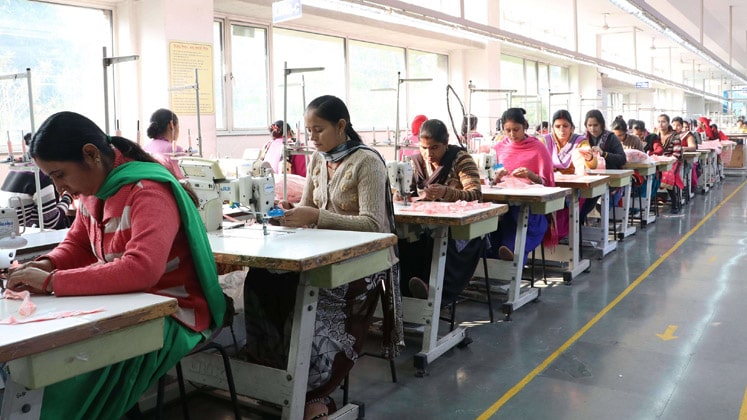
Kolkata-based Earthbags Export has become Eastern India’s first green factory in the MSME category.
There are many more similar and interesting examples of apparel manufacturers taking sustainable steps like using electric vehicles for their transportation, packaging material made out of sustainable ‘Maize’ fibre.
Focus on product-specific developments like thrust on organic cotton is also India’s strength as the country has the highest certified facilities (more than 2411) as far as GOTS (Global Organic Textile Standard) certification is concerned. Many Indian textile companies use pet bottles to make fabrics and that too across all categories and clusters.
India’s Recycled PET (r-PET) Bottles market valued at US $ 320.72 million in 2020 and with a CAGR of 7.89 per cent, it is expected to reach US $ 556.8 million by 2027. Reliance, Indorama Synthetics, Sun City Synthetics are leading this segment.
KG Denim in Coimbatore has also installed a PET bottle recycling plant to recycle used plastic bottles and plastic containers, thus leading to a CO2 saving of about 15 million kilos or equivalent to 90,000 trees planted. It also uses a maximum of 6 litres to make one metre of denim and more than 60 per cent of the energy needed for fabric processing is derived from renewable energy resources like wind and solar.
Trims giants are also not behind in sustainability like Mainetti India, the leader in hanger manufacturing, which has the first platinum-certified green factory in India. Manohar Filaments, known for its variety of trims, has also marked its strong presence in almost all segments of sustainability, be it through the use of solar energy, massive tree plantation, use of recycled raw materials like recycled cotton, recycled polyester, recycled spun polyester, just to mention a few.
Buyers’ push and collaboration
Various international brands and retailers, having their sourcing base in India, are supporting their Indian vendors with a variety of sustainable initiatives which include guiding, motivating and training vendors. These buyers fund various programmes in vendors’ factories. For the supply chain, initiatives also include insisting on sustainable raw materials, worker welfare and supporting cotton farmers, while for the society, water conservation and education for kids are among the focus areas.
Personal Advancement and Career Enhancement Program (PACE) is a perfect example in this regard. An initiative of US-based brand GAP, it has helped thousands of women workers get training for their life empowerment.
Also working for the society, GAP has supported the Self-Employed Women’s Association (SEWA) and achieved its goal of training over 2,71,000 women across India.
Similarly, since its initial pilot phase in 2016, 36,436 women have benefited through M&S’s POWER (Providing Opportunities to Women for Equal Rights) programme in factories of Bengaluru, Gurugram and Manesar.
Brands are taking up collaborative efforts with other stakeholders also like BSR’s HERproject, Gap Inc.’s P.A.C.E, CARE International and Better Work have come together to form a new initiative called RISE (Reimagining Industry to Support Equality) to scale impact and accelerate equality for women workers in the global garment, footwear and home furnishings supply chain.
For the last three years, the H&M Foundation is running the first-of-its-kind US $ 11 million initiative, Saamuhika Shakti, aiming to equip informal waste pickers in India to lift themselves out of poverty. Under this initiative, buttons partly made from plastic waste collected by informal waste pickers in Bengaluru are being featured on garments sold worldwide.
Laudes Foundation (C&A) operates on two fronts – farming practices to ensure that farmers’ livelihoods are viable, crops are regenerative and land is restored and production practices to tackle the systemic issues behind forced labour and child labour that are often associated with cotton production.
Indian retailers are also ahead
Companies like Reliance Trends, Aditya Birla Fashion and Retail (ABRFL), Tata Trent and Arvind Fashions, which are the backbone of the Indian retail industry, are aggressive on sustainable initiatives.
For ABRFL, products are at the core of its sustainability strategy. The company is focusing on design, development and sustainability attributes of products with yearly targets and long-term.
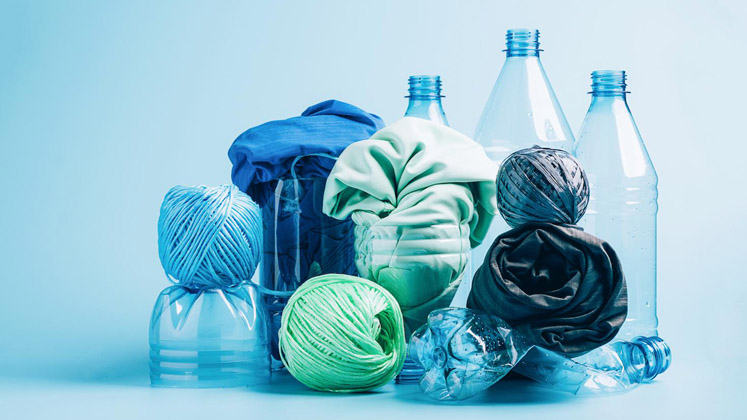
Retailers’ initiatives are also associated at the grass route with their customers and even schools to create awareness at the ground level. ABRFL and 1M1B (One Million for One Billion) have created a ‘Green Jobs and Sustainability Accelerator’ programme for schools and colleges.
Fairtrade’s School initiative is committed to Fairtrade values and practices; it is at the heart of the global movement for promoting responsible consumption and production (United Nations Sustainable Development Goal 12). Similarly, there are now many short and long-term courses at the college level as well as online specially dedicated to sustainability.
| 3699 This number of units have GOTS facilities in India which is the highest across the globe and more than double compared to Turkey (1674) and China (1646) |
Arvind Fashions is currently focusing on responsible supply chain, sustainable fashion social responsibility. It also runs a pilot programme for its brand Unlimited to spread awareness among customers on the growing problem of textile waste and provides a platform to them to dispose of their old and not-in-use garments sustainably.
Retailers’ retail stores/operations involve LED lighting, VFD installations to control and optimise power consumption. They are also executing IoT-based automation for energy optimisation at their various stores.
Two years ago, Myntra became the first e-commerce player in India to partner with Better Cotton Initiative. It started sourcing 10 per cent of its cotton for in-house brands from BCI initially, while it targeted scaling this sourcing by up to 50 per cent in the next five years.
Start-ups scaling up on the sustainable front
Start-ups in nearly all the segments are working with innovative material, pre- and post-consumer textile waste, supporting women to ensure their employment, offering dedicated sustainable clothing and much more.
There are many established and emerging D2C brands, slow fashion brands that are dedicated to the cause of sustainability like Doodlage, an eco-fashion and lifestyle label which is known for products that are handmade using factory waste, recycled material and are made to be zero waste.
| Rs. 20 crore Loan being offered by Small Industries Development Bank of India (SIDBI) to support ‘green financing’ |
Umang Sridhar’ s Umangshridhar Design is a B2B-handcrafted fabrics company that sources different types of khadi from villages in Madhya Pradesh and supplies to high-end boutiques and high-street stores and famous designers too. Not to forget that the start-up is financially empowering women in the region.
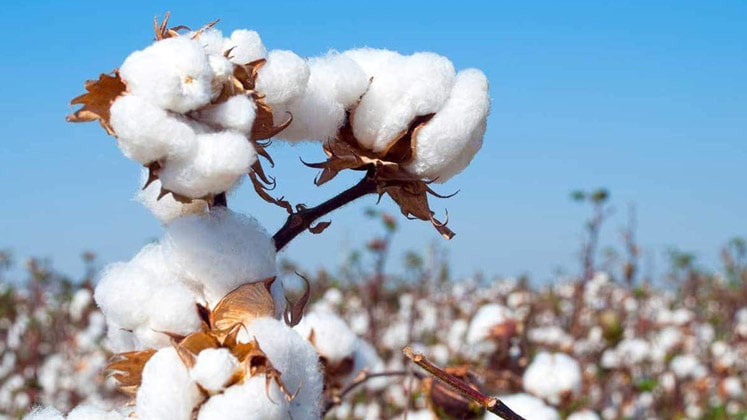
BCI-certified cotton by up to 50 per cent in the next five years
Tech-based companies supporting sustainability
From traceability to resale, tech-based Indian organisations have also emerged strongly and are implementing sustainable practices. Post-Covid, a large number of apparel manufacturers are now using 3D Virtual Sampling, helping to reduce waste in design and product development. Indian apparel manufacturers to retailers have also adopted the solutions provided by the global tech companies just like Tukatech has a huge market in India. The company is globally acclaimed for its various product development related software and allied offerings. Similarly, Avery Dennison, a global materials science company, has many clients in India.
Bengaluru-based Textile Genesis is a pioneering traceability platform custom-built for the fashion and textile ecosystem. It has created global traceability for textile giants like Lenzing fibres and also has close associations with H&M, Bestseller etc. Relove is another fashion brand with resale tech and digital factory outlets, helping to launch circular stores too.
TrusTrace is a technology company specialising in creating innovative solutions for supply chain, transparency and traceability. Its software solutions are based on AI and blockchain, and through its open architecture, the TrusTrace platform integrates seamlessly with retailers, manufacturers and supplier systems, as well as other third parties, such as certification agencies, lifecycle datasets and other sustainability solution providers.
Government broad spectrum
The policies and vision of states and federal Government have given a big push to the Indian textile and apparel industry. It has not only motivated but also financially supported the companies.
The National Action Plan on Climate Change (NAPCC) is a Government initiative for addressing, combating and adapting to climate change.
On a larger level, almost one-and-a-half years ago, India’s Prime Minister Narendra Modi announced that India will achieve the target of net zero emissions by 2070 and there are a slew of measures being adopted by various State Governments in this regard.
Established by India and France, International Solar Alliance (an alliance of 123 signatory countries,) aims at mobilising more than US $ 1000 billion of investment needed by 2030 for the massive deployment of solar energy. There are subsidies on electric vehicles with Fame India scheme (Faster Adoption and Manufacturing of Electric and Hybrid Vehicles in India), a mandatory solar plant with certain terms and various State Government subsidies on establishing Effluent Treatment Plant (EPT), Zero Liquid Discharge (ZLD).
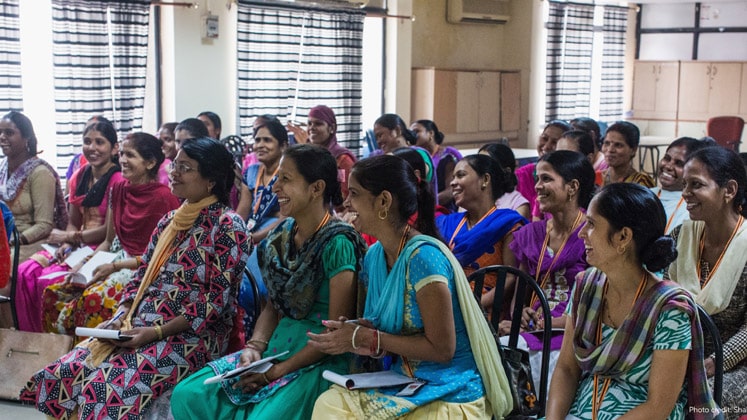
The government will also launch a task force to address environmental concerns in the textile sector soon.
To ensure that the corporate world supports society, India took a step ahead a decade ago and became the first country to legally mandate corporate social responsibility (CSR) as a rule in Section 135 of India’s Companies Act, making it mandatory for companies with a certain turnover and profitability to spend 2 per cent of their average net profit on CSR for the past three years. It covers companies having a net worth of Rs. 500 crore or more; those with turnover of Rs. 1000 crore or more; or those having a net profit of Rs. 5 crore or more. As per official data, Corporate India spent as much as Rs. 25,715 crore towards various CSR projects in 2020-21.
Recently The Securities and Exchange Board of India (SEBI) approved the National Stock Exchange (NSE) to launch Social Stock Exchange (SSE) as a separate segment. This move is a game-changer for social impact investing in India.
There are many other initiatives taken by the Government for promoting sustainability at the ground level like pushing apparel manufacturing units to run the boiler on PNG which is environmental-friendly and cost-effective.
What more needs to be done
In future, things are going to be more critical across the globe, as already various countries are on their toes to improve the environment. As in the UK, the Competition and Markets Authority launched a review of sustainability claims in the fashion retail sector in 2022, aiming for fashion as one of the worst-offending industries when it comes to greenwashing.
In New York, Fashion Sustainability and Social Accountability Act (Fashion Act), Climate Leadership and Community Protect Act have been introduced. While in EU, European Commission has adopted legislations like Circular Economy Action Plan, Single-Use Plastics Directive, and last year, the EU Commission proposed the EU Strategy for Sustainable and Circular Textiles. So there is a huge focus of the Government as well as the political class on textile-related sustainability. Due to all this, there is mounting pressure on retailers and brands and their vendors to adhere to sustainability rules.
Despite the aforementioned initiatives, India still needs to work on 3 major fronts so that the prevailing gap can be fulfilled.
| 1600 KTPA (Kilo Tonnes Per Annum) by 2030 (Indian bottle-to-textile polyester recycling capacity) |
There are hundreds of small to medium-level companies across the value chain that are just following the law of the land and are not much focused on following sustainability, so their awareness and motivation level regarding sustainability needs to increase, especially with regard to the financial aspect of being sustainable as many consider sustainable investments to be a financial burden. In fact, investment in sustainable practices helps in saving on natural resources and waste management and increases the bottom line. Then there are resources available for green financing and top private banks to Government organisations like the Small Industries Development Bank of India (SIDBI) are there to support. SIDBI is offering such loans for MSMEs up to Rs. 20 crore.
Various states’ pollution control boards and statutory body National Green Tribunal (NGT) often issue notices, impose fines or take suitable actions against firms for not following the law of the land. Though most of the cases belong to firms working in unorganised sectors, but they have a significant impact on the environment.






